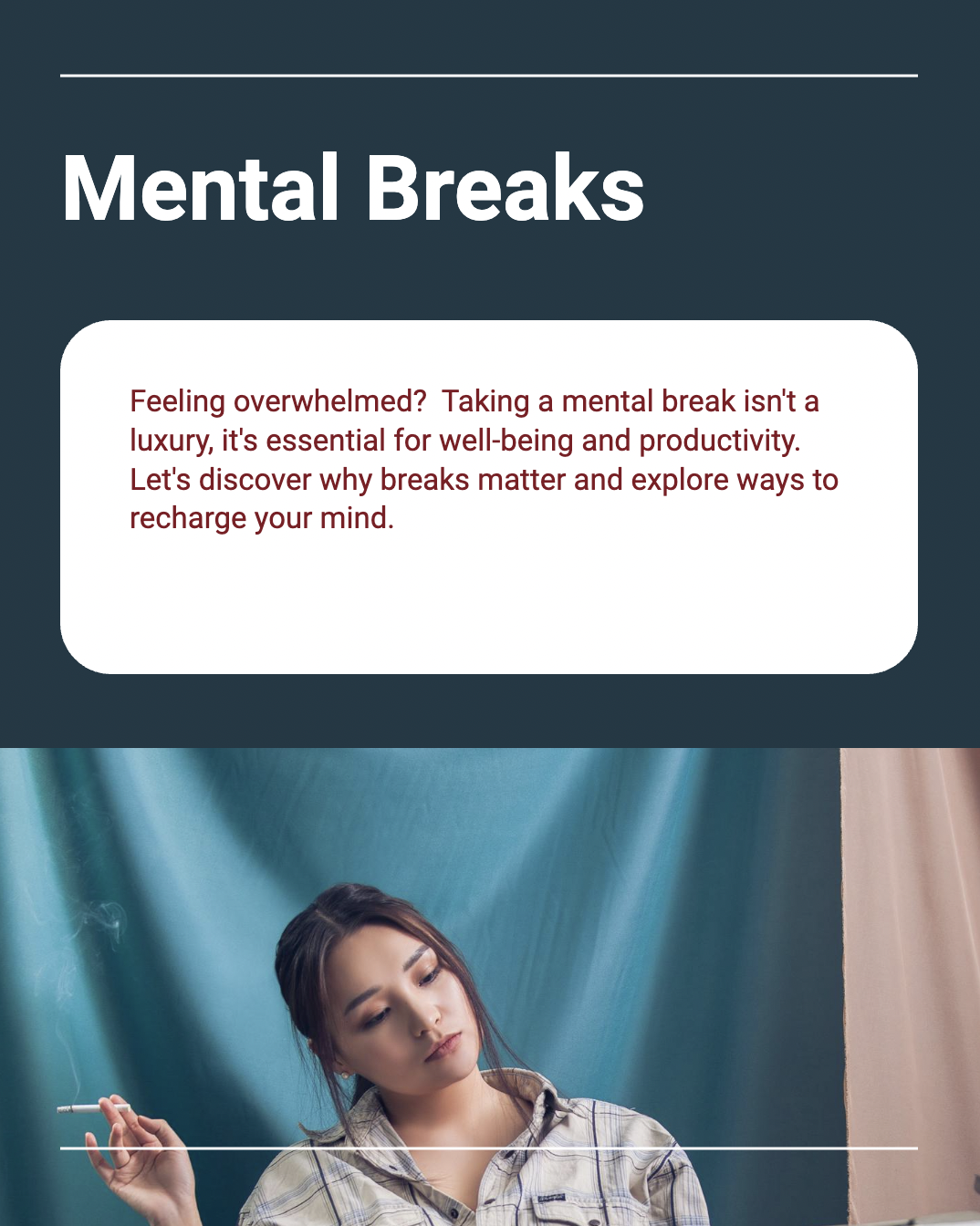
It’s not uncommon to feel overwhelmed by responsibilities, deadlines, and endless to-do lists. Taking a mental break isn’t just a luxury—it’s essential for maintaining your well-being and productivity. Let’s dive into actionable steps to recharge your mind, regain focus, and tackle your day with renewed energy.
Our brains aren’t designed to work continuously without rest. Just like our bodies need sleep to recover, our minds need breaks to avoid burnout and stay sharp.
Knowing when to take a step back is critical. Here are a few signs to watch for:
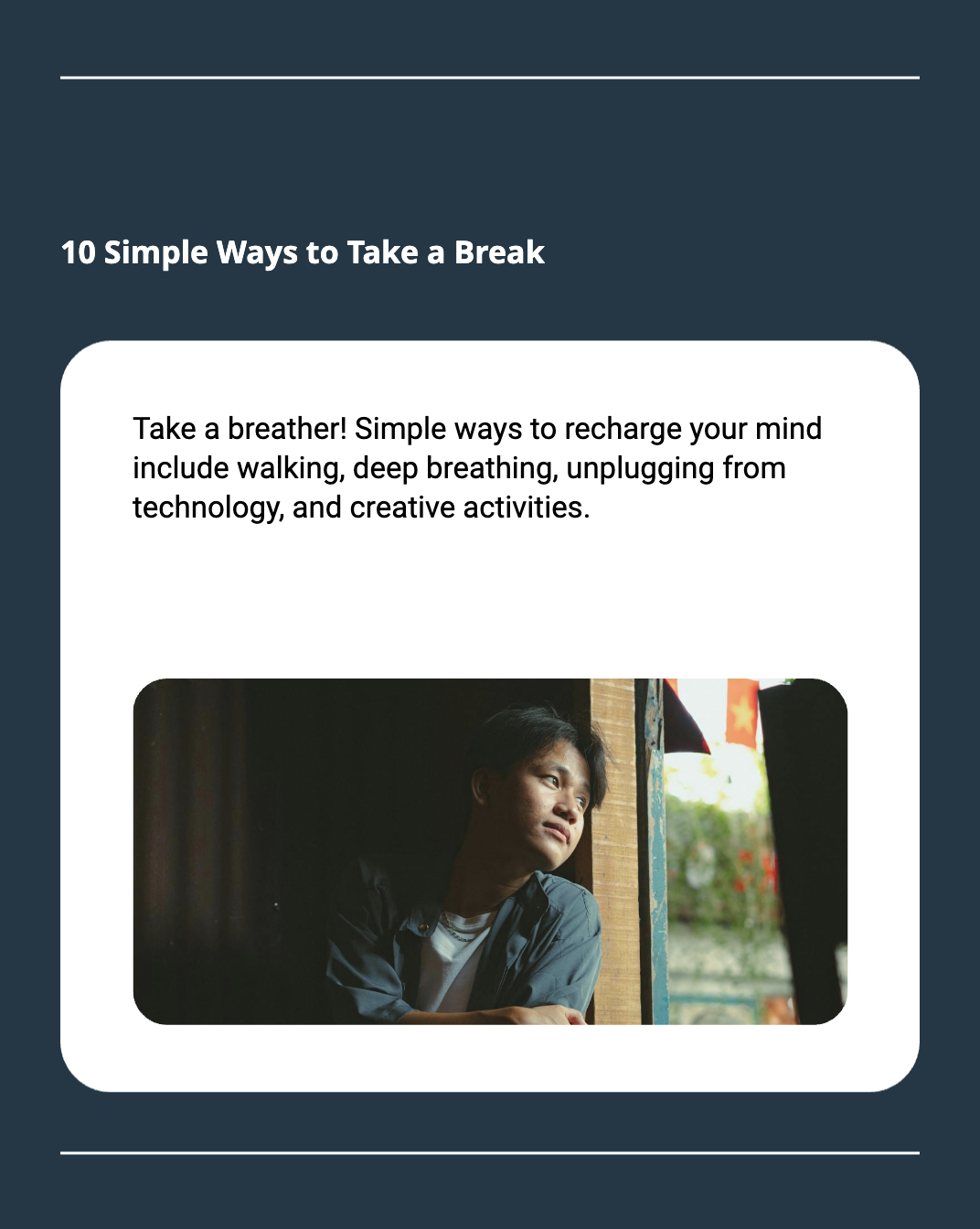
Walking is one of the easiest ways to clear your mind. Being in nature has been shown to reduce stress and improve mood. Even a quick stroll around the block can work wonders.
Spend 5 minutes focusing on your breath. Try this simple exercise: inhale for 4 seconds, hold for 4 seconds, and exhale for 6 seconds. Deep breathing slows your heart rate and calms your nervous system.
Step away from screens for a while. Constant notifications and emails can overwhelm your brain. Use this time to read a book, doodle, or simply sit in silence.
Meditation doesn’t have to be complicated. Find a quiet spot, close your eyes, and focus on your breathing. Apps like Calm or Headspace can guide you if you’re new to meditation.
Journaling can help you process your thoughts and emotions. Write down what’s bothering you or make a gratitude list to shift your focus to positive things in your life.
Music has a profound impact on our emotions. Create a playlist of songs that calm and inspire you, or listen to nature sounds like rainfall or ocean waves for a relaxing effect.
A short nap (15-30 minutes) can refresh your brain and improve your focus. Avoid longer naps that may interfere with your nighttime sleep routine.
Engage in a hobby like painting, cooking, or playing an instrument. Creative activities shift your brain's focus and provide a mental escape.
Exercise releases endorphins, which are natural stress relievers. Even a 10-minute workout can elevate your mood and give you an energy boost.
Talking to a friend or family member can lighten your mood and help you feel supported. A quick conversation can be all it takes to reset.
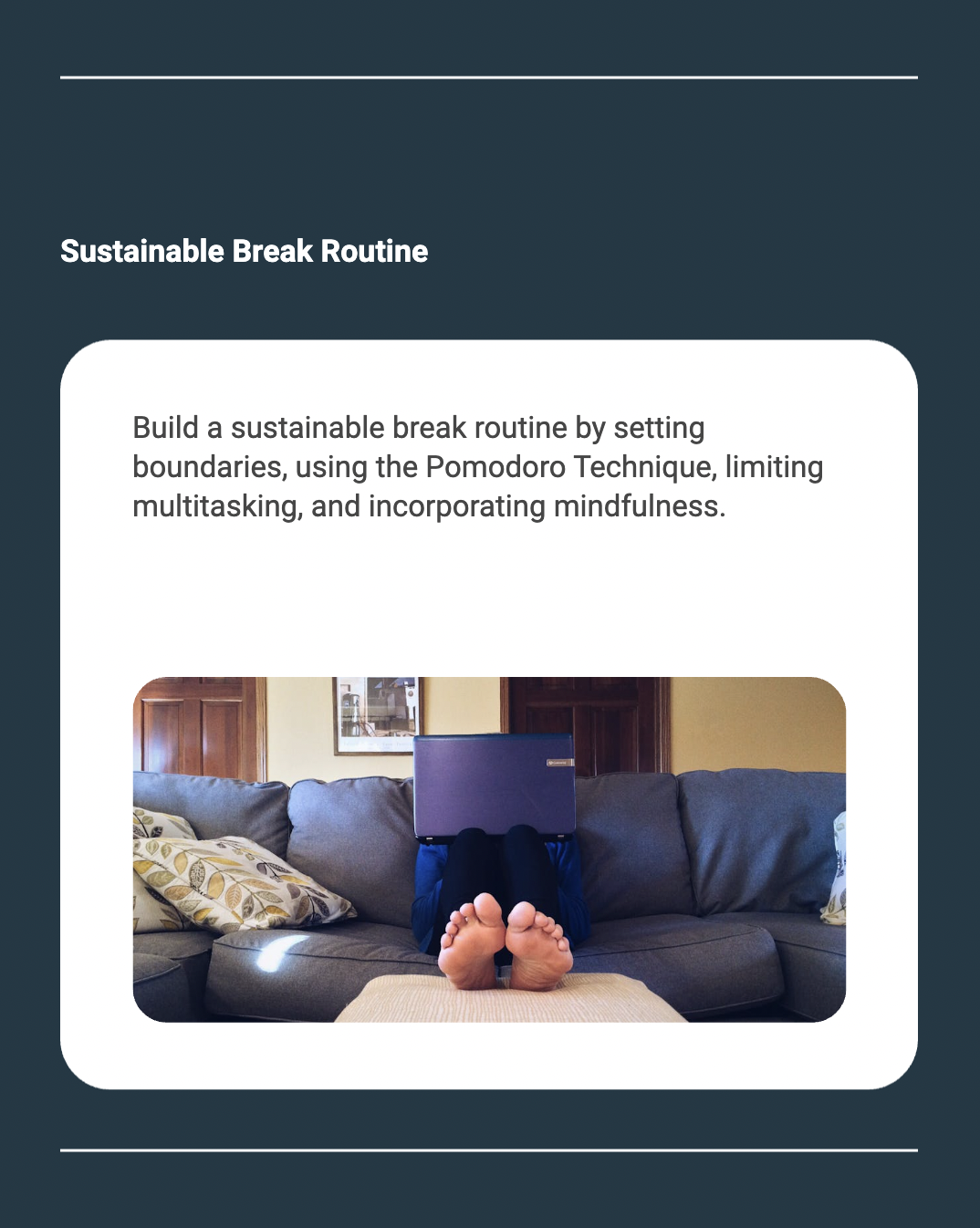
To truly benefit from mental breaks, it’s important to make them a regular part of your life. Here are some tips:
Work for 25 minutes and then take a 5-minute break. After four cycles, take a longer 15-30 minute break.
Focus on one task at a time to avoid mental exhaustion.
Start your day with mindfulness exercises to set a positive tone.
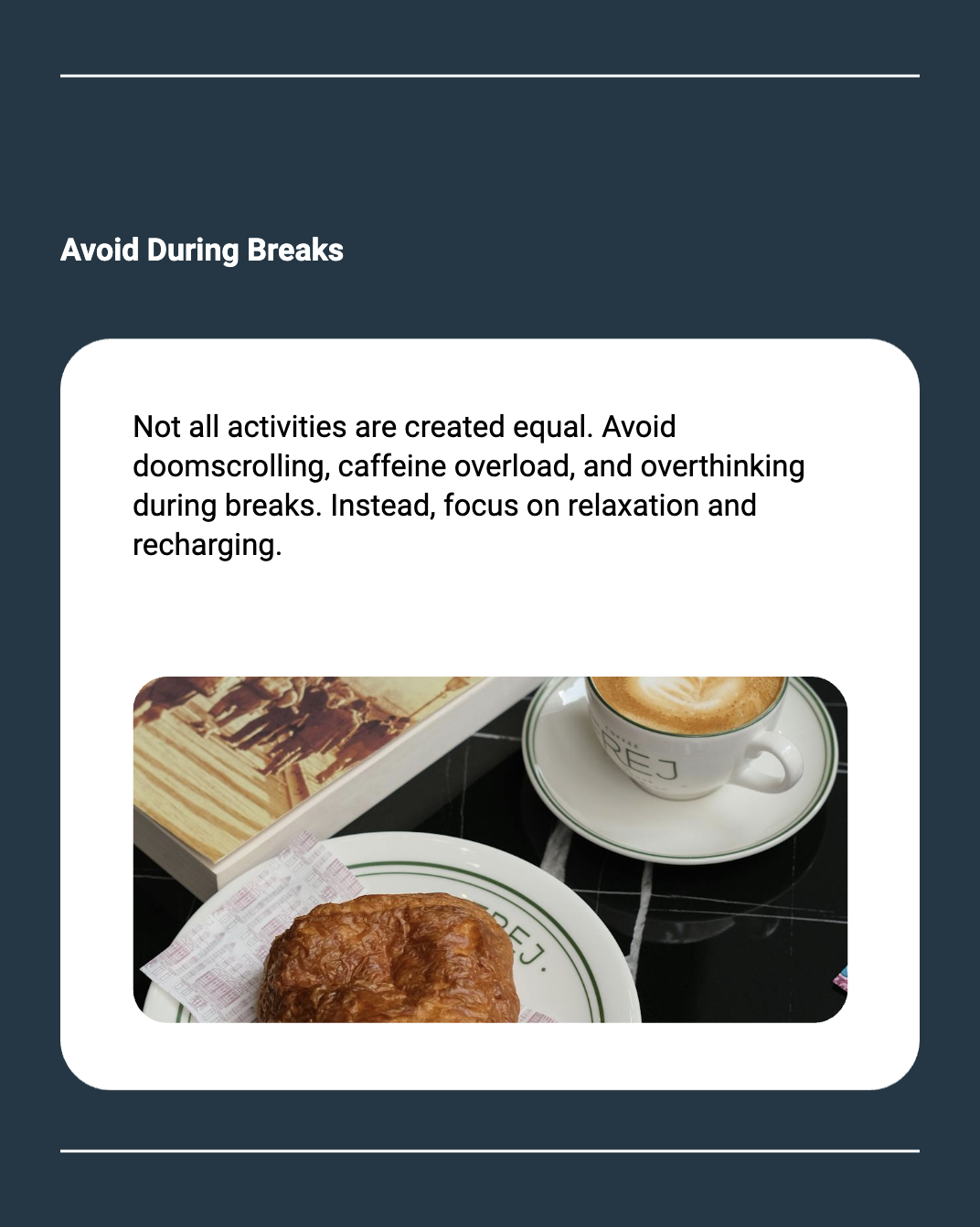
Not all activities will recharge your mind. Here’s what to skip:
Studies have shown that mental breaks improve focus, creativity, and decision-making. Breaks also help consolidate memories, making them crucial for learning.
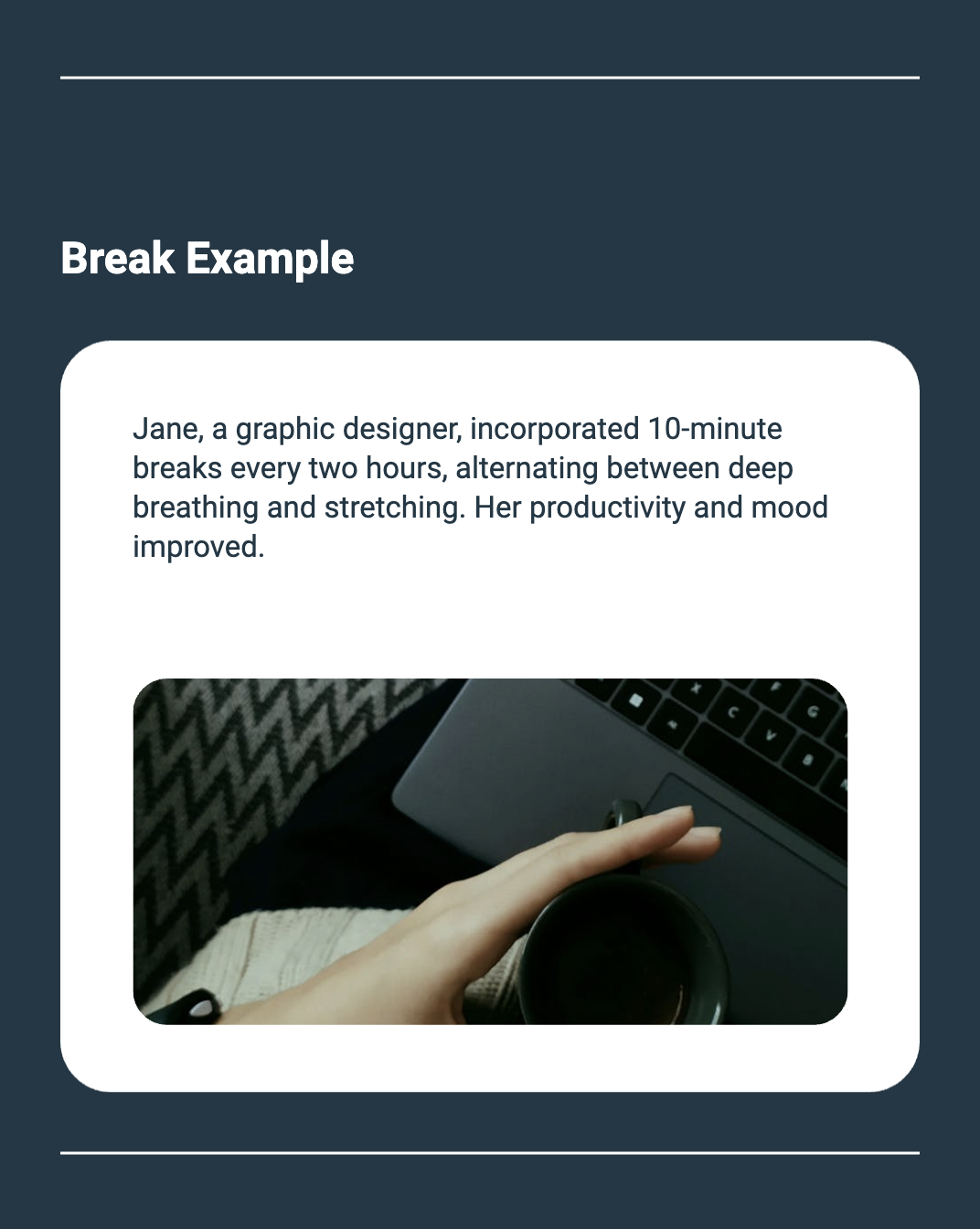
Jane, a busy graphic designer, felt overwhelmed balancing multiple deadlines. She started incorporating 10-minute breaks every two hours, alternating between deep breathing and stretching. Within weeks, her productivity improved, and she felt less stressed.
A mental break can last anywhere from 5 to 30 minutes. The key is to step away until you feel refreshed and refocused.
No! Breaks prevent burnout and help you sustain productivity over longer periods. They allow your brain to recharge.
Even micro-breaks, like a minute of deep breathing or standing to stretch, can make a difference.
Aim for a short break every 25-30 minutes during intensive work and longer breaks every 2-3 hours.
Mental breaks are about pausing work to recharge, while relaxation can involve deeper unwinding, like vacations or spa days.
Taking a mental break isn’t a sign of weakness—it’s an act of self-care that can enhance your mental and emotional health. By incorporating intentional pauses into your routine, you’ll be better equipped to handle challenges and enjoy your daily life. So take that break—you’ve earned it!
 10.12.2024
10.12.2024